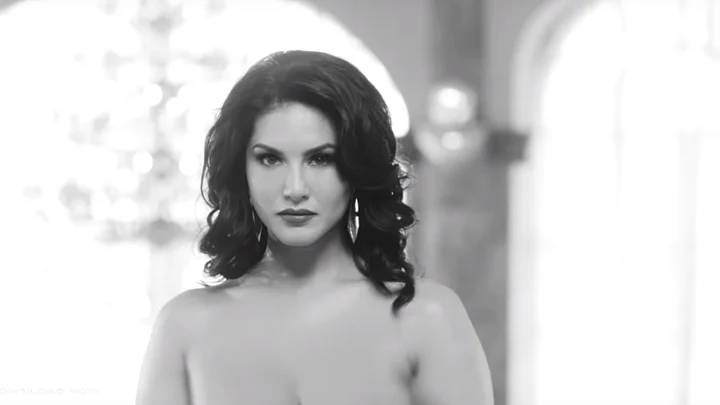It’s raining biopics in Bollywood and the trend has spilled over into the digital entertainment space as well. The first season of Karenjit Kaur: The Untold Story of Sunny Leone on Zee5 is a 10-episode web series that has come with the blessing of the actor, unlike the 2016 documentary Mostly Sunny, which streams on Netflix.
Karenjit Kaur traces the journey of a Sikh girl growing up in Canada and United States to becoming a porn star, and later a Bollywood actor. Starring Sunny Leone as herself and directed by Aditya Datt, the biopic in the first season showcases her life roughly between 2003 and 2013. The narrative is held together by the actor who narrates her life story in an interview with an obnoxious journalist.
Too busy to read? You can listen to the entire story here.
Does it work? Or is Karenjit Kaur: The Untold Story of Sunny Leone another hagiographic exercise so often indulged in by Bollywood stars? The answer is a bit of both.
Being Sunny Leone
Sunny Leone is nothing like anything India has ever seen. The former porn star is now an entrepreneur-turned-Bollywood actor, who continues to be the most Googled Indian year after year. But what sets Sunny truly apart is what she says at one point in Karenjit Kaur - her guts. She has always been unapologetic about her career choice and maintained that she has had no qualms and no regrets. She liked the money the job earned her and she couldn’t understand how or why anyone else had the right to judge her for that.
But Sunny is now working hard to build her Bollywood portfolio and outright honesty is not what most of the Indian audience is comfortable with - look at the SGPC protest against the use of ‘Kaur’ in the web series title!
Hence, Karenjit Kaur seems to be an attempt to build a cause-and-effect trajectory for Sunny’s journey on one hand, and her attempts to combat the projection of the Sunny Leone in Mostly Sunny on the other (the show refers to several incidents shown in the documentary). A comparison between the two is inevitable, and one shines more in honesty than the other.
For the uninitiated, Mostly Sunny directed by Dilip Mehta, premiered at the Toronto International Film Festival in 2016. Sunny unofficially distanced herself from it when reportedly Mehta refused to remove her front nude shots from the docu.
Thumbs Up
Karenjit Kaur: The Untold Story of Sunny Leone is engaging simply because it is a superb story. The series deftly cuts between different periods of Sunny’s life - from growing up in a traditional household and bullied in school to her foray into modelling and pornographic films to her rise to stardom and her family’s discovery of and reaction to her career.
The pace is crisp and high on the emotional quotient, especially the bits around the Vohra family - think immigrant issues, rivalries between family members, and battling everything from a parent’s alcoholism to a daughter’s unconventional career choice.
The series should be lauded for sticking to most of the facts - Mostly Sunny refers to/showcases them too. And kudos for not shoving Sunny’s confessed bisexuality under the carpet.
(Pssst! If you are expecting a lot of skin show, don’t bother.)
But this is also what brings us to what’s not so great about it.
Thumbs Down
Karenjit Kaur also, to a great extent, tells a very watered down version of Sunny’s story.
The actor seems to have been torn between how much of herself to keep in the narrative, and how much to tame down so as to help build a positive image for the Indian audience.
Where she had been unabashed and touchingly honest in her views in Mostly Sunny, the girl in Karenjit Kaur: The Untold Story of Sunny Leone seems to be trying to trade her guts for a favourable public opinion. And this too happens in spurts, making the narrative uneven.
So the series shows Sunny repeatedly refusing fantastic sums of money against adult entertainment assignments before surrendering due to her family’s financial issues. She’s glaringly uncomfortable many times on projects and most importantly on a chat show, the original footage of which in Mostly Sunny shows her to be completely uninhibited in her responses. And yet, towards the end of the series, Sunny emphasises in her interview with the TV journalist that though she started out on this career path for money, she is unapologetic about the Sunny Leone brand she has painstakingly built. And that it was her choice. This see-saw leaves the audience a tad baffled.
Perhaps this is also the reason why Sunny’s performance as herself too is uneven. She seems immersed in most of the family sequences or when she is being her unabashed self in front of scrutiny and judgement. But it turns lack lustre when she takes on the “role”.
All said and done, Karenjit Kaur: The Untold Story of Sunny Leone is a one-time watch. I only wish Sunny Leone had decided not to tame it down to suit sensibilities. While it makes complete business sense, it takes away a bit of soul from the brave woman that she is.
(At The Quint, we question everything. Play an active role in shaping our journalism by becoming a member today.)
